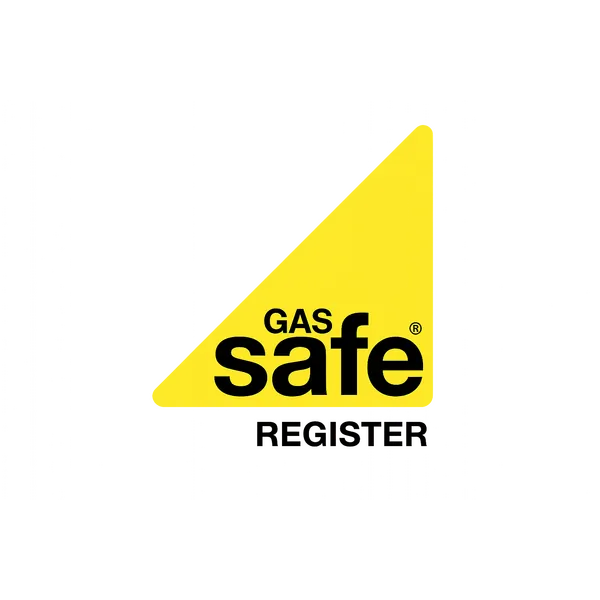The Real Running Costs of an Air Source Heat Pump in the UK
As UK households increasingly consider switching from traditional gas boilers to more sustainable heating solutions, one question dominates the conversation: what are the real running costs of an air source heat pump? At CRG Direct, we believe in transparent, data-driven analysis to help homeowners make informed decisions about their energy future.
Understanding the Basics: How Heat Pumps Work
Air source heat pumps (ASHPs) extract heat from the outside air, even in cold weather, and transfer it inside your home. Unlike gas boilers that burn fuel to create heat, heat pumps move existing heat using electricity. This fundamental difference in operation is key to understanding their running costs.
The Efficiency Factor: COP Explained
The efficiency of a heat pump is measured by its Coefficient of Performance (COP). A COP of 3.0 means the system delivers 3kW of heat for every 1kW of electricity consumed. Modern ASHPs typically achieve COPs between 2.5 and 4.0, depending on:
- Outdoor temperature
- System design and installation quality
- Property insulation levels
- Heating system requirements
Electricity vs Gas: The Cost Comparison
Current UK Energy Prices (2025)
Based on current market data:
- Electricity: Average 28p per kWh
- Gas: Average 7p per kWh
At first glance, this appears heavily weighted toward gas being cheaper. However, the efficiency factor changes this calculation dramatically.
The Real Cost Calculation
Let's compare heating a typical 3-bedroom semi-detached home requiring 12,000 kWh of heat annually:
Gas Boiler (85% efficiency):
- Required gas input: 12,000 kWh ÷ 0.85 = 14,118 kWh
- Annual cost: 14,118 kWh * £0.07 = £988
Air Source Heat Pump (COP 3.2):
- Required electricity: 12,000 kWh ÷ 3.2 = 3,750 kWh
- Annual cost: 3,750 kWh * £0.28 = £1,050
Result: The heat pump costs approximately £62 more per year than a gas boiler under these conditions.
Seasonal Variations and Real-World Performance
Winter Performance Challenges
During colder months, heat pump efficiency naturally decreases as the temperature difference between inside and outside grows. A system achieving COP 3.5 in autumn might drop to COP 2.2 during a cold snap.
Winter Scenario (0°C outdoor temperature):
- Heat requirement: 6,000 kWh (November-February)
- COP: 2.2
- Electricity needed: 6,000 ÷ 2.2 = 2,727 kWh
- Cost: 2,727 * £0.28 = £764
Summer and Shoulder Season Benefits
During milder months, heat pumps operate at peak efficiency:
Shoulder Season (10°C outdoor temperature):
- Heat requirement: 4,000 kWh (March, April, October)
- COP: 3.8
- Electricity needed: 4,000 ÷ 3.8 = 1,053 kWh
- Cost: 1,053 * £0.28 = £295
Real-World Consumption Data
Case Study: 4-Bedroom Detached Home
Our monitoring of actual installations reveals:
- Property: 4-bed detached, 120m², built 1990s
- Annual heat demand: 15,000 kWh
- Heat pump electricity consumption: 4,200 kWh
- Actual COP achieved: 3.57
- Annual running cost: £1,176
- Equivalent gas cost: £1,235 (assuming 85% efficient boiler)
The Impact of Property Characteristics
Running costs vary significantly based on:
- Insulation quality: Well-insulated homes reduce heat demand by 30-50%
- Heating system type: Underfloor heating operates more efficiently than radiators
- Hot water requirements: Heat pumps can provide domestic hot water but may require backup
Factors That Significantly Affect Running Costs
1. System Sizing and Installation Quality
Poorly sized or installed systems can increase running costs by 20-40%. Oversized units cycle frequently, while undersized units struggle to maintain temperature.
2. Weather Compensation Settings
Modern heat pumps with optimised weather compensation can reduce running costs by 10-15% compared to fixed-temperature operation.
3. Electricity Tariff Selection
Time-of-use tariffs like Economy 7 or heat pump-specific tariffs can dramatically reduce costs:
- Off-peak rates as low as 15p/kWh
- Potential savings of £200-£400 annually
- Requires thermal storage or smart control integration
4. Maintenance and System Health
Annual maintenance costs approximately £150-£200 but ensures optimal efficiency. Neglected systems can see efficiency drops of 10-20%.
CRG Direct's Honest Projections for UK Households
Based on our analysis of hundreds of installations and market trends, we project:
Short-term (2025-2027)
- Running cost parity: Heat pumps will reach cost parity with gas boilers as electricity prices stabilise and gas prices continue volatility
- Efficiency improvements: New models will achieve average COPs of 4.0+ in typical UK conditions
- Tariff evolution: More competitive heat pump-specific electricity tariffs will emerge
Medium-term (2028-2030)
- Cost advantage: Heat pumps will become cheaper to run than gas boilers
- Grid decarbonisation: Increasing renewable electricity will reduce carbon intensity
- Technology integration: Smart grid integration will enable further cost optimisation
Long-term (2030+)
- Clear economic advantage: Heat pumps will be significantly cheaper to operate
- Gas price pressure: Carbon taxes and infrastructure costs will increase gas prices
- System maturity: Installation quality and consumer understanding will improve
The Complete Financial Picture
Upfront Costs vs Lifetime Savings
While installation costs remain higher than gas boilers (£7,000-£12,000 vs £2,000-£4,000), the Boiler Upgrade Scheme provides £7,500 grants, significantly narrowing this gap.
15-year total cost comparison:
- Gas boiler: £2,500 (installation) + £14,820 (running) = £17,320
- Heat pump: £9,000 (installation) - £7,500 (grant) + £15,750 (running) = £17,250
Result: Near parity over the system lifetime, with heat pumps offering superior environmental benefits.
Making the Right Decision for Your Home
When Heat Pumps Make Financial Sense
- Well-insulated properties with low heat demand
- Off-gas grid homes currently using oil, LPG, or electric heating
- Properties suitable for underfloor heating or large radiators
- Homeowners planning long-term residence (10+ years)
When to Consider Alternatives
- Poorly insulated properties requiring significant upgrades
- Small properties with limited outdoor space
- Homes with existing modern condensing boilers
- Short-term ownership situations
The Environmental Dividend
Beyond pure financial calculations, heat pumps offer substantial environmental benefits:
- Carbon reduction: 60-70% lower emissions than gas boilers
- Air quality: Zero local emissions
- Future-proofing: Compatibility with renewable electricity
Conclusion: An Investment in Your Home's Future
The running costs of air source heat pumps in the UK are increasingly competitive with traditional gas heating, particularly when considering total lifetime costs and environmental benefits. While upfront costs remain a consideration, government grants and improving technology are making heat pumps an increasingly attractive option for UK homeowners.
At CRG Direct, we believe the transition to sustainable heating is not just environmentally necessary but increasingly economically sensible. The real cost of heating your home extends beyond your monthly bill to include environmental impact, system longevity, and future energy security.
Ready to explore whether a heat pump is right for your home? Contact our expert team today for a personalised assessment and discover how you could benefit from cleaner, more efficient heating.















